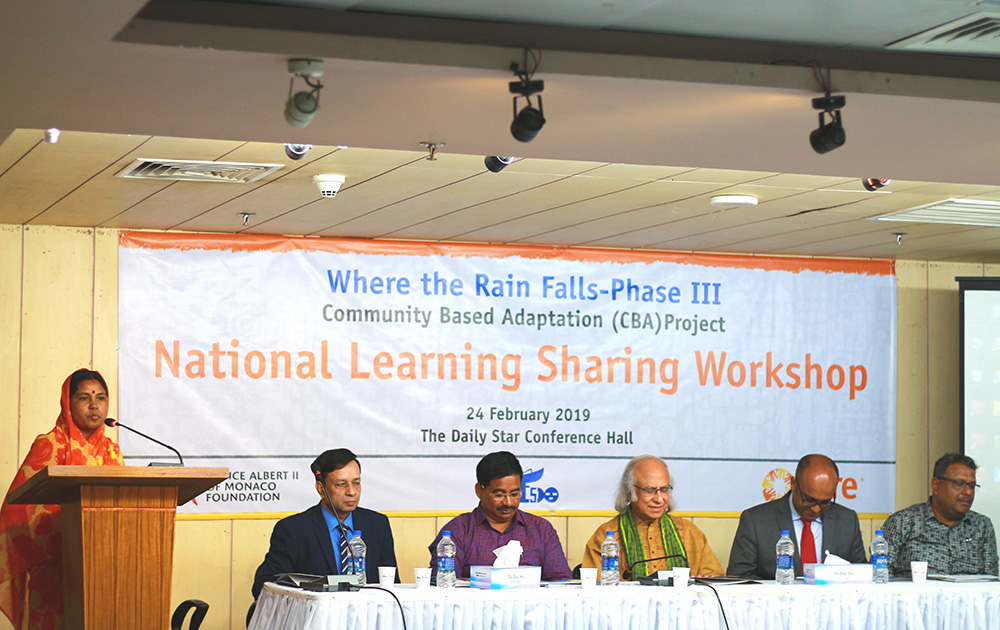
In Northern Bangladesh, agriculture production mostly depends directly on natural rainfall. Therefore, variations in rainfall, one of the major observed impacts of climate change, have direct effects on farmers’ livelihoods and food security.
Paying attention to this, CARE Bangladesh has been implementing a project titled ‘Where the Rain Falls’ (WtRF) since 2014 with the support of CARE France and the funding of Prince Albert II of Monaco Foundation. The project supported 6,500 vulnerable and marginalized farmers against the negative impacts of climate change by promoting SuPER (Sustainable, Profitable, Equitable and Resilient) agriculture practices through community based adaptation. CARE successfully completed the third phase of the project in three unions – Pachgachi, Holo Khana and Jatrapur of Kurigram Sadar from January 2017 to February 2019.
CARE Bangladesh and Eco-Social Development Organization (ESDO) hosted a National Learning-Sharing workshop on 24 February 2019, at the Daily Star Conference Hall, Dhaka. The event was attended by Chief Guest, Dr. Qazi Kholiquzzaman Ahmad, renowned economist and chairman of Palli Karma-Sahayak Foundation (PKSF) and senior government officials including Mr. Shamsuddin Ahmed, Director, Bangladesh Metrological Department (BMD) and Mr. Md. Abdul Wazed, Additional Director, Department of Agricultural Extension (DAE). The discussion focused on scaling up to other areas, gender equity in agriculture and climate change challenges.
The climate adaptation initiatives taken by the project were to promote better and proven agronomic practices and techniques with an aim to improve long term sustainability of cropping system, homestead-based agriculture while ensuring immediate financial and social gains. Women were given top priority in almost all the activities and made up 76% of Farmer Field School (FFS) members, thus, contributing to their family, social and economic empowerment. The project also helped establish community seed banks, introduce mustard as a third crop and connect smallholder farmers to agro-climate service providers.
Sushama Rani, a smallholder farmer present at the workshop claims that prior to the project she had no idea that flood tolerant rice varieties existed. She also learnt other adaptive agricultural knowledge and technologies to save her crops and vegetables during floods. She said “I have sufficient food to eat, sell in the market and also share with the neighbourhood sometimes”. She adds that she would be benefited if more initiatives such as this continued in her area.
Dr. Kholiquzzaman praised the project saying “there was much to see in terms of progress made for women farmers”. He iterated that to sustain the achievements of the project there needs to be dedicated follow-up activities. Better coordination of different government and non-government organizations would also benefit farmers to this end, he said.
CARE Bangladesh Country Director Zia Chowdhury and ESDO Executive Director Dr. Md. Shahid Uz Zaman spoke at the workshop among others.
